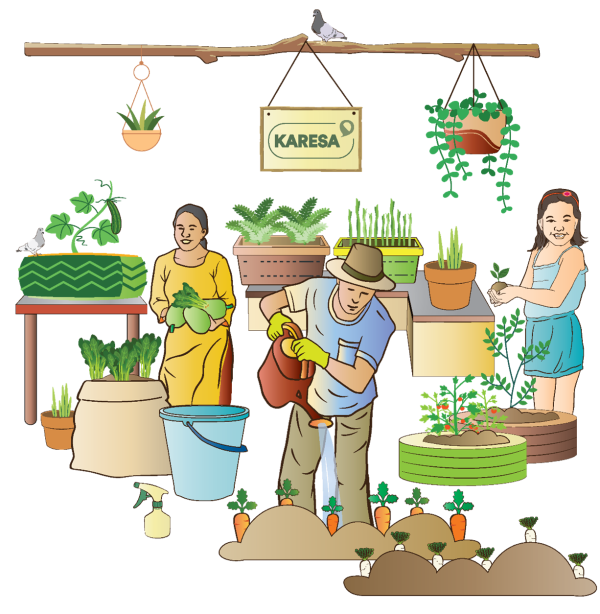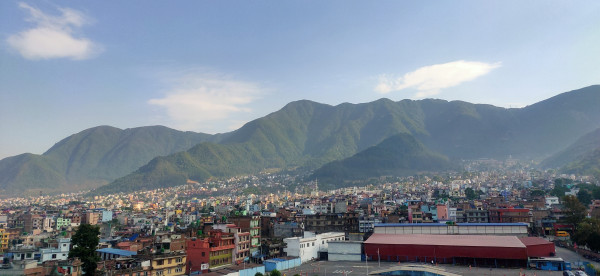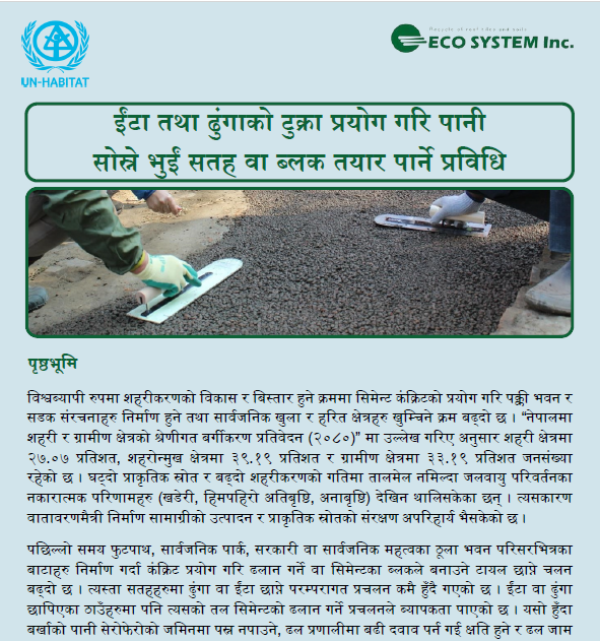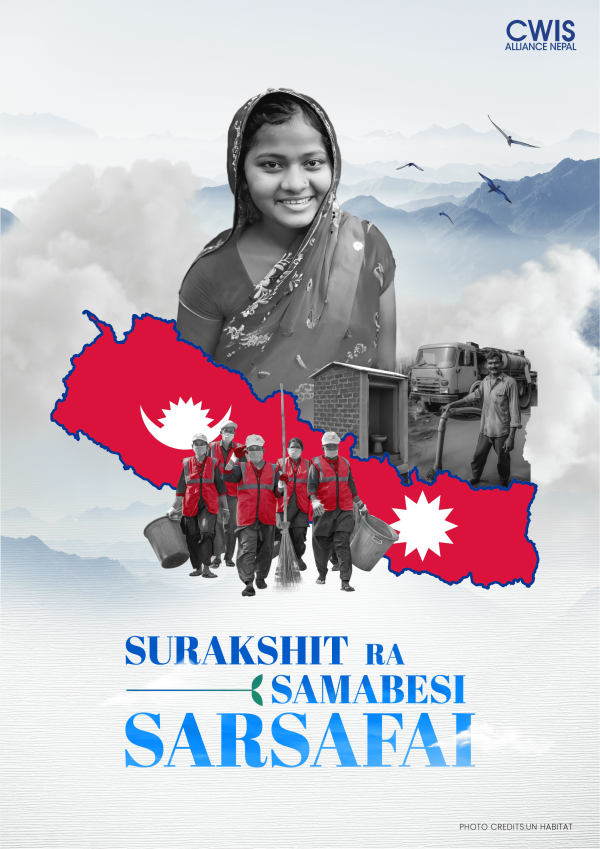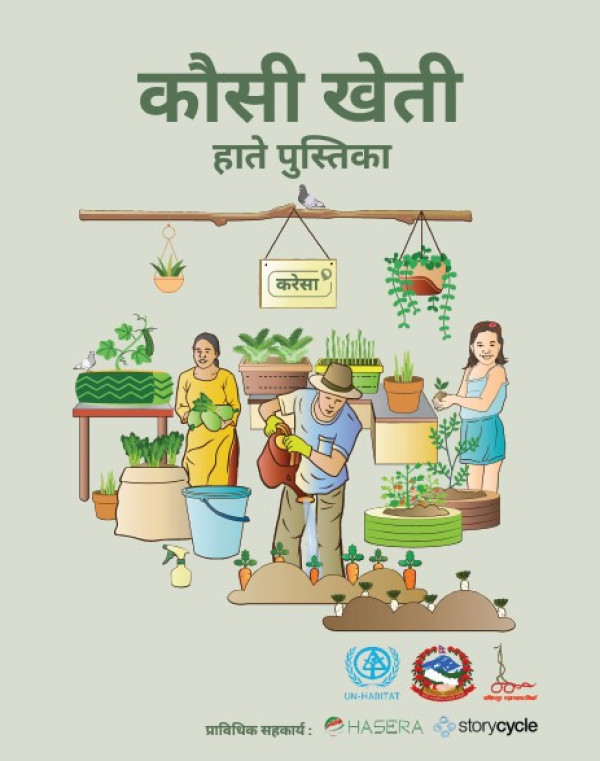Voice from slum
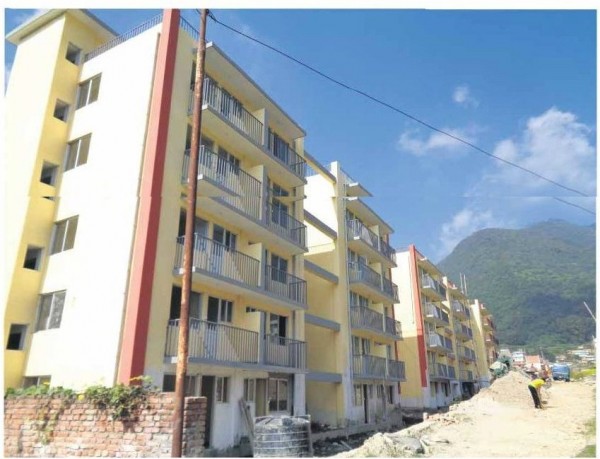
Nirjana Sharma
Well-to-do people need to realize that slum dwellers also have rights to basic facilities, including right to survive in city
What bothers Bindu Poudel the most nowadays is that the apartments are being constructed in front of her resident at Ekaltar of Ichangu Narayan VDC in Kathmandu. As the construction work is entering the final phase, Poudel along with more of her neighbors are just not in position of wait and see but ready to hit the streets. Only reason for people´s anger here is the government´s plan to relocate squatters to their posh locality.
Ekaltar, where the Department of Urban Development and Building Code (DUDBC) has been constructing seven apartments in a bid to ensure settlement for the landless, teems with seemingly well-to-do folk.
Many of the residents of the neighborhood have majestic houses built on sprawling plots of land with the boundary wall tall enough to restrict outsiders from even viewing them. A four wheeler or two parked on the premises is a common sight throughout the new locality established in the planned neighborhood.
It´s not that the seven apartments being built by the state for the landless is that bad. Each apartment has the capacity to house 233 families where each family have three room flat comprising a bedroom, drawing room and kitchen with attached toilet bathroom.
But the neighbors around are not ready to accept their presence.
"Relocation of squatters will violate peace and tranquility of our locality," says Poudel disdainfully.
Gopal Bahadur Bhandari who leads the Tole Sudhar Samiti (neighborhood improvement committee) of Ekaltar is “worried” that the children of the neighborhood will “lose their track” if they get fall into the company of squatters´ children.
Given the situation, the noble residents of the locality have already organized themselves to resist the government´s plan to settle squatters there.
Back in downtown Kathmandu, at the Thapathali-based UN Park, the landless evicted from the banks of the Bagmati River are languishing.
“Hard-hit by the monsoon, we are now struggling to brace for the winter,” says 42 years old Kamala Tamang, squatting outside her makeshift tent where she and her family have been living ever since the government demolished her house by the Bagmati banks in 2012.
The numerous questions posed by her children unanswered -- due to poverty. Two square meals a day, continuation of school for the children, treatment to ailing family members and a trustworthy commitment from the responsible authority are some of the major challenge.
"There was a hope last year that the second Constituent Assembly elections would bring our plights to the attention of our leaders and would increase our negotiating power," said Tamang.
"We have finally realized that there is nobody who cares for us," says Suman Chaudhari, leader of the Squatters´ Struggle Committee.
The ray of hope
But they see a ray of hope in the forms of a few social organizations which have come forward to help them, though DUDBC also has been trying to help them of late.
Lumanti, an organization that advocates for the livelihood of landless and the urban poor, has been constructing the affordable apartments targeting the squatters and urban poor in 10 municipalities across the country.
“As many as 5,000 houses have been constructed under the public private partnership,” says Lumanti´s Communication Officer Shama Bajra.
Has the organization faced similar hurdles like the one the DUDBC is facing at Ekaltar?
"Creating a new settlement is impossible job until or unless we clear misconceptions about the new people to resettle there," says Bajra. “Both the new settlers and the old habitants have to share water and drainage facility. Thus, it will be an injustice to both the groups if we don´t clear the confusion.”
"Lumanti conducts a series of interactions between the stakeholders without which beginning the housing project is impossible," she added.
As per the two-year plan of the DUDBC, the seven apartments at Ekaltar will completed at an estimated cost of Rs 140 million in two phases, with the first phase to be concluded by April and the second by September next year.
However, the flat is not free of cost. The office would determine the rent once the construction work is accomplished. Similarly, the authority would require the tenants to renew the contract after 10 years.
But there are other problems, too.
The squatters at Thapathali say that they would not move to the outskirts of the Kathmandu Valley.
Squatters´ leader Chaudhary argues that most of the people who live in the settlement are daily wage earners and they would not go to live in the apartments paying rent.
"The government can´t guarantee us job in and around the new locality, and we can´t travel every day using public transport in search of work in the city," he explains.
While around 16,000 squatters are estimated to be living at public land encroaching upon various riverbanks of the Valley, Chaudhary is annoyed for being targeted only as squatters.
"We are aliens for rest of the city dwellers, that is why the government remains quiet when we face accusations of being a menace to the society," he charges.
Put yourself in the shoes of the slum dwellers
 The urban areas of Nepal are growing fast with which the challenges to address the woes of the people living under the poverty line in the urban areas is rising too. You can scorn at them as slum dwellers or poor, the real problem is the general mindset that city is the place for only well-to-do people and not for the poor. To change this mindset, we need response programs, and such programs are lacking.
Around 12 percent of the total population of the country is homeless, states the latest National Census Report.
On top of that frequent natural calamities such as floods and landslides are adding to the number of homeless. Those who were self-reliant or well-to-do yesterday are helpless today. Where will they go? In absence of timely intervention from the concerned authorities to facilitate their rehabilitation and livelihood in a package, many of them are compelled enter urban areas for survival. And they are most likely to find shelter at slums at some neglected quarters of the cities.
To give voices to such people, who are bereft of basic rights such as education, health, shelter, water and sanitation, Nepal is also marking the World Habitat Day on Monday.
Much of the issues have been covered by the National Habitat Policy drafted by the Ministry of Urban Development, which the UN Habitat also backs.
It´s high time that all the stakeholders build a common understanding to address the voices of slum dwellers as we celebrate the day with the slogan “Voice from Slum”.
Source: Republica, 13Oct 2014
The urban areas of Nepal are growing fast with which the challenges to address the woes of the people living under the poverty line in the urban areas is rising too. You can scorn at them as slum dwellers or poor, the real problem is the general mindset that city is the place for only well-to-do people and not for the poor. To change this mindset, we need response programs, and such programs are lacking.
Around 12 percent of the total population of the country is homeless, states the latest National Census Report.
On top of that frequent natural calamities such as floods and landslides are adding to the number of homeless. Those who were self-reliant or well-to-do yesterday are helpless today. Where will they go? In absence of timely intervention from the concerned authorities to facilitate their rehabilitation and livelihood in a package, many of them are compelled enter urban areas for survival. And they are most likely to find shelter at slums at some neglected quarters of the cities.
To give voices to such people, who are bereft of basic rights such as education, health, shelter, water and sanitation, Nepal is also marking the World Habitat Day on Monday.
Much of the issues have been covered by the National Habitat Policy drafted by the Ministry of Urban Development, which the UN Habitat also backs.
It´s high time that all the stakeholders build a common understanding to address the voices of slum dwellers as we celebrate the day with the slogan “Voice from Slum”.
Source: Republica, 13Oct 2014

